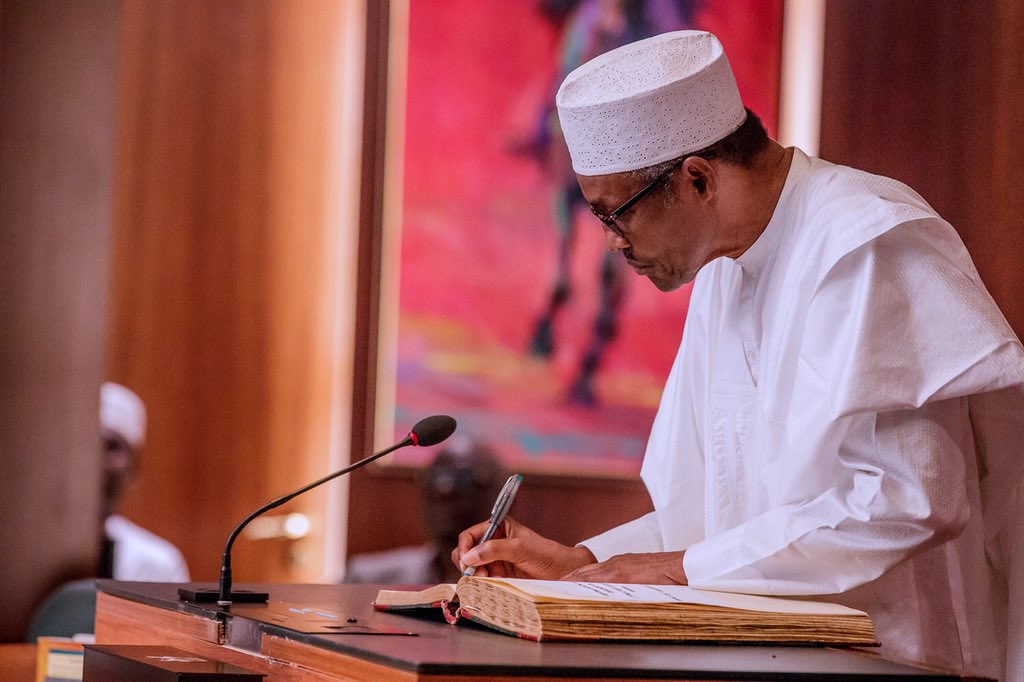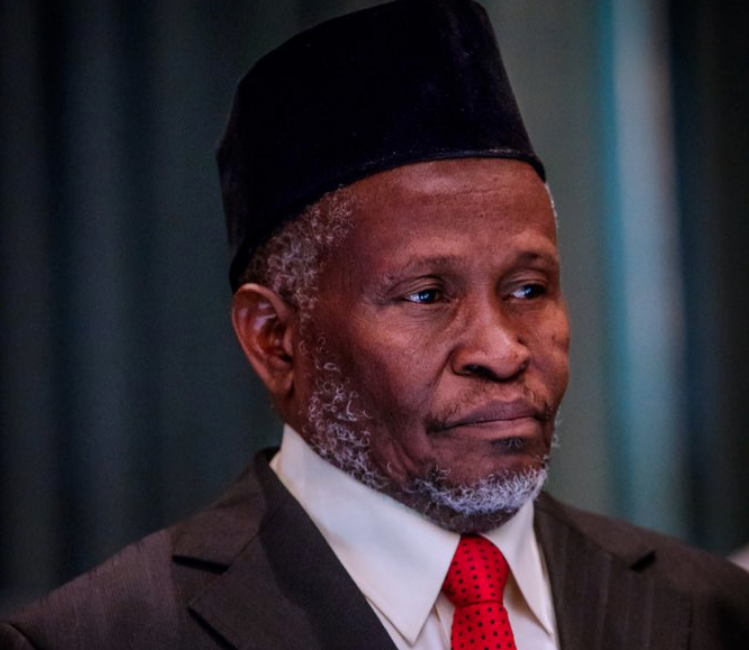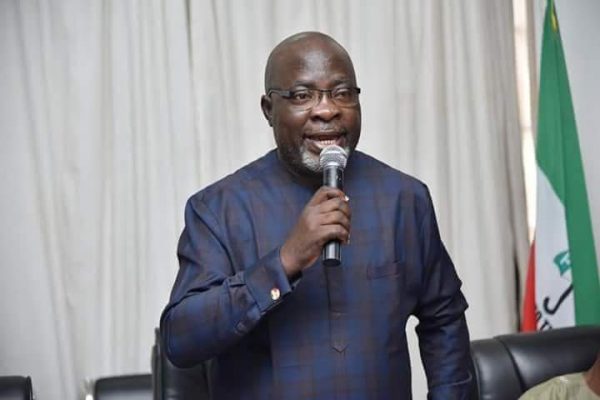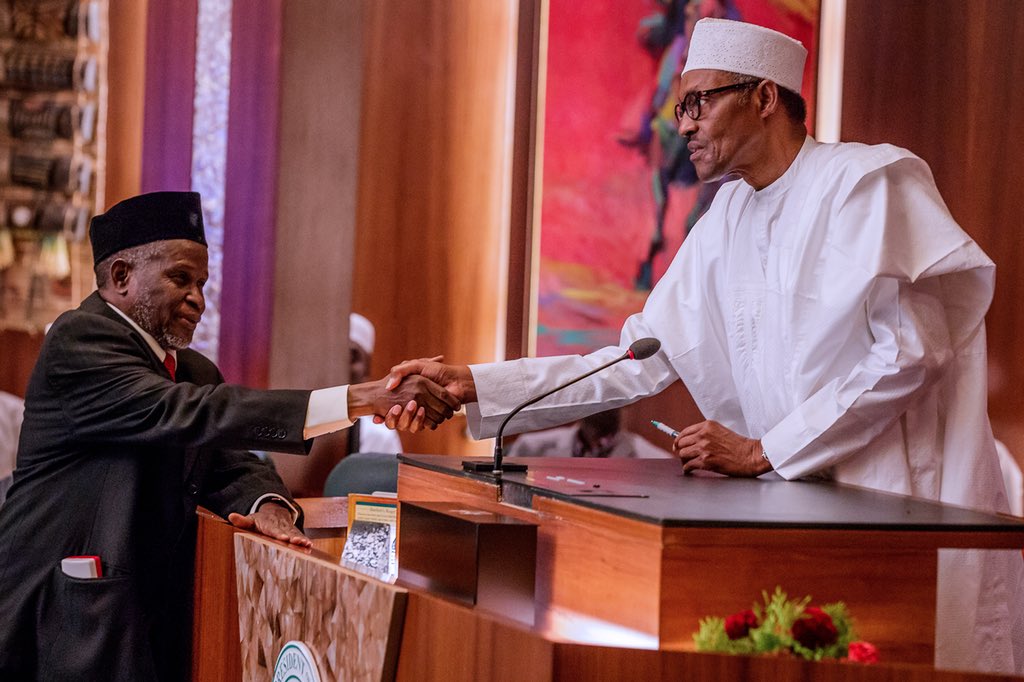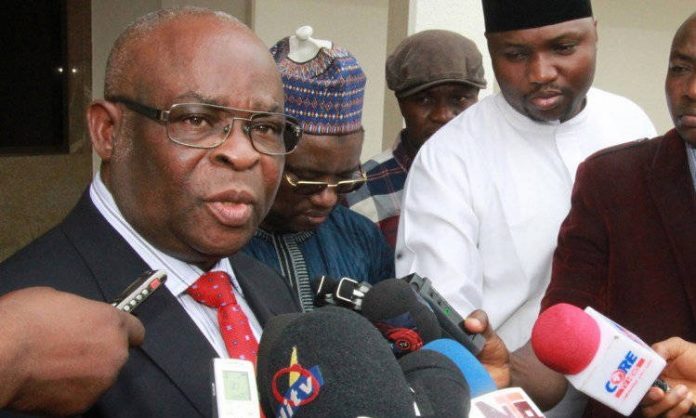On Friday, President Muhammadu Buhari took an unprecendent move when he suspended Walter Onnoghen as chief justice of Nigeria (CJN) over his ongoing trial at the Code of Conduct Tribunal (CCT).
The president said Onnoghen’s removal followed the ruling of the Code of Conduct Tribunal (CCT) which ordered that he should be suspended and replaced with his second-in-command.
But the big question on the lips of many remains: does the president have the power to suspend a CJN?
Checks by TheCable showed that while the constitution provides what is required for the CJN to be removed, it was mute on his suspension from office.
Advertisement
According to section 157 of the constitution, the president can remove the CJN, who is also the chairman of the National Judicial Council, only while acting on address supported by the senate over the person’s misconduct.
The section 157 reads: “(1) Subject to the provisions of subsection (3) of this section, a person holding any of the offices to which this section applies may only be removed from that office by the President acting on an address supported by two-thirds majority of the Senate praying that he be so removed for inability to discharge the functions of the office (whether arising from infirmity of mind or body or any other cause) or for misconduct.
“(2) This section applies to the offices of the Chairman and members of the Code of Conduct Bureau, the Federal Civil Service Commission, the Independent National Electoral Commission, the National Judicial Council, the Federal Judicial Service Commission, the Federal Character Commission, the Nigeria Police Council, the National Population Commission, the Revenue Mobilisation Allocation and Fiscal Commission and the Police Service Commission.”
Advertisement
Further down in section 292, the constitution points out that such address could result from contravention of the code of conduct, which Onnoghen has been accused of.
That section reads: “(1) A judicial officer shall not be removed from his office or appointment before his age of retirement except in the following circumstances – (a) in the case of – (i) Chief Justice of Nigeria, President of the Court of Appeal, Chief Judge of the Federal High Court, Chief Judge of the High Court of the Federal Capital Territory, Abuja, Grand Kadi of the Sharia Court of Appeal of the Federal Capital Territory, Abuja and President, Customary Court of Appeal of the Federal Capital Territory, Abuja, by the President acting on an address supported by two-thirds majority of the Senate.
“(ii) Chief Judge of a State, Grand Kadi of a Sharia Court of Appeal or President of a Customary Court of Appeal of a State, by the Governor acting on an address supported by two-thirds majority of the House of Assembly of the State, praying that he be so removed for his inability to discharge the functions of his office or appointment (whether arising from infirmity of mind or of body) or for misconduct or contravention of the Code of Conduct.”
Moreover, while it did not say whether the CJN can also be removed on the order of a court – the CCT in this case, the interpretation act, chapter 192, seems to also empower the president to remove who he has appointed.
Advertisement
Section 11 of the act states: “Where an enactment confers a power to appoint a person either to an office or to exercise any function, whether for a specified period or not, the power includes: a. power to appoint a person by name or to appoint the holder from time to time in a particular office, b. power to remove or suspend him, c. power to reappoint or reinstate him; to appoint a person to act in his place, either generally or in regard to specified functions.”
WHERE DOES THE NJC COME IN?
The power to discipline judges is vested in the National Judicial Council (NJC). Section 158 (1) of the constitution says: “In exercising its power to make appointments or to exercise disciplinary control over persons, the Code of Conduct Bureau, the National Judicial Council, the Federal Civil Service Commission, the Federal Judicial Service Commission, the Revenue Mobilisation and Fiscal Commission, the Federal Character Commission, and the Independent National Electoral Commission shall not be subject to the direction or control of any other authority or person.”
Suspension is part of disciplinary measures against a judge.
Advertisement
Add a comment

